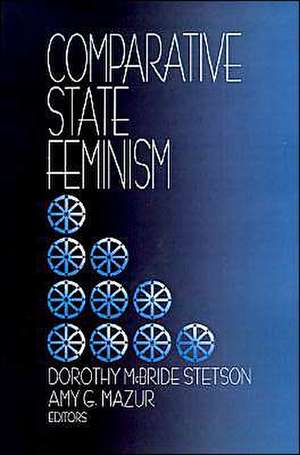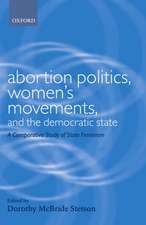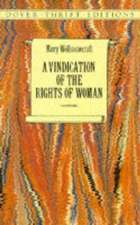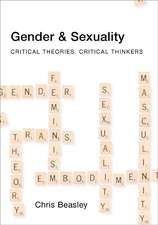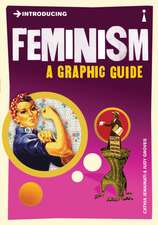Comparative State Feminism
Editat de Dorothy McBride Stetson, Amy G. (Gale) Mazuren Limba Engleză Paperback – 20 sep 1995
Preț: 796.50 lei
Preț vechi: 971.33 lei
-18% Nou
Puncte Express: 1195
Preț estimativ în valută:
152.42€ • 159.33$ • 128.80£
152.42€ • 159.33$ • 128.80£
Carte tipărită la comandă
Livrare economică 06-20 martie
Preluare comenzi: 021 569.72.76
Specificații
ISBN-13: 9780803958302
ISBN-10: 0803958307
Pagini: 349
Dimensiuni: 154 x 230 x 23 mm
Greutate: 0.54 kg
Ediția:1
Editura: SAGE Publications
Colecția Sage Publications, Inc
Locul publicării:Thousand Oaks, United States
ISBN-10: 0803958307
Pagini: 349
Dimensiuni: 154 x 230 x 23 mm
Greutate: 0.54 kg
Ediția:1
Editura: SAGE Publications
Colecția Sage Publications, Inc
Locul publicării:Thousand Oaks, United States
Cuprins
Introduction - Dorothy McBride Stetson and Amy Mazur
`Femocrats in Glass Towers' - Marian Sawer
The Office of the Status of Women in Australia
Feminism and State Institutions in Canada - Linda Geller-Schwartz
A Political Niche - Anette Borchorst
Denmark's Equal Status Council
Strong State and Symbolic Reform - Amy Mazur
The <i>Ministère des Droits de la Femme</i> in France</i>
Making Equality - Myra Marx Ferree
The Women's Affairs Offices in the Federal Republic of Germany
The Equal Opportunities Commission in Great Britain - Joni Lovenduski
Ireland's Policy Machinery - Evelyn Mahon
The Ministry of State for Women's Affairs and Joint Oireachtas Committees for Women's Rights
The Late-Comers - Marila Guadagnini
Italy's Equal Status and Equal Opportunity Agencies
Administrative Accommodation in the Netherlands - Joyce Outshoorn
The Department for the Coordination of Equality Policy
Women's Equality Machinery in Norway - Jill Bystydzienski
The Equal Status Council
Women, the State and the Need for Civil Society - Jean Robinson
The <i>Liga Kobiet</i> in Poland
The Power of Persuasion - Ceila Valiente
The <i>Instituto de la Mujer</i> in Spain
The State's Equality for Women - Amy Elman
Sweden's Equality Ombudsman
The Oldest Women's Policy Agency - Dorothy McBride Stetson
The Women's Bureau in the U S
Conclusion - Amy Mazur and Dorothy McBride Stetson
The Case for State Feminism
`Femocrats in Glass Towers' - Marian Sawer
The Office of the Status of Women in Australia
Feminism and State Institutions in Canada - Linda Geller-Schwartz
A Political Niche - Anette Borchorst
Denmark's Equal Status Council
Strong State and Symbolic Reform - Amy Mazur
The <i>Ministère des Droits de la Femme</i> in France</i>
Making Equality - Myra Marx Ferree
The Women's Affairs Offices in the Federal Republic of Germany
The Equal Opportunities Commission in Great Britain - Joni Lovenduski
Ireland's Policy Machinery - Evelyn Mahon
The Ministry of State for Women's Affairs and Joint Oireachtas Committees for Women's Rights
The Late-Comers - Marila Guadagnini
Italy's Equal Status and Equal Opportunity Agencies
Administrative Accommodation in the Netherlands - Joyce Outshoorn
The Department for the Coordination of Equality Policy
Women's Equality Machinery in Norway - Jill Bystydzienski
The Equal Status Council
Women, the State and the Need for Civil Society - Jean Robinson
The <i>Liga Kobiet</i> in Poland
The Power of Persuasion - Ceila Valiente
The <i>Instituto de la Mujer</i> in Spain
The State's Equality for Women - Amy Elman
Sweden's Equality Ombudsman
The Oldest Women's Policy Agency - Dorothy McBride Stetson
The Women's Bureau in the U S
Conclusion - Amy Mazur and Dorothy McBride Stetson
The Case for State Feminism
Descriere
The cross-national trend in post-industrial societies of establishing state structures assigned to improve the status of women is studied in this book. The existence of a phenomenon called `state feminism' has begun to be a focus of research in the past few years, although the phenomenon itself dates from the 1960s, thus there is a clear need for a comparative analysis. With contributions from renowned scholars, the book: describes and classifies the range and diversity of state structures charged with improving the status of women in post-industrial societies; analyzes their effect on the status of women on achieving feminist goals; and explains the variations among post-industrial societies in the establishment, elaboration and effectiven
